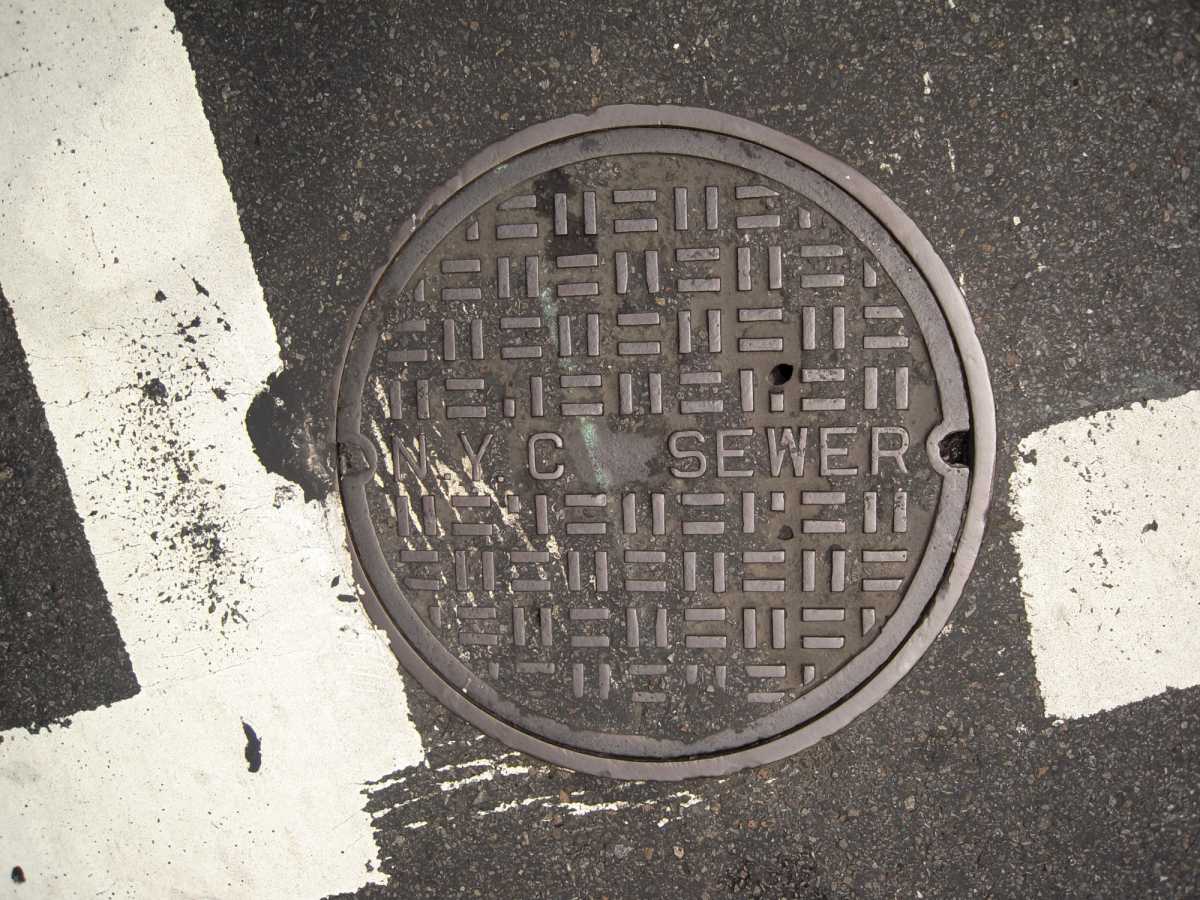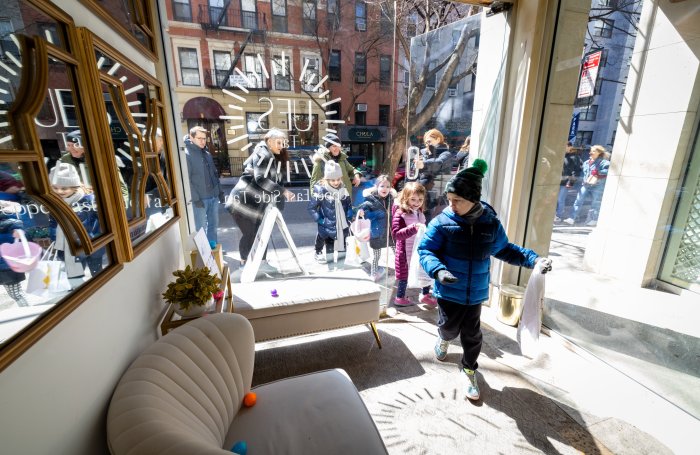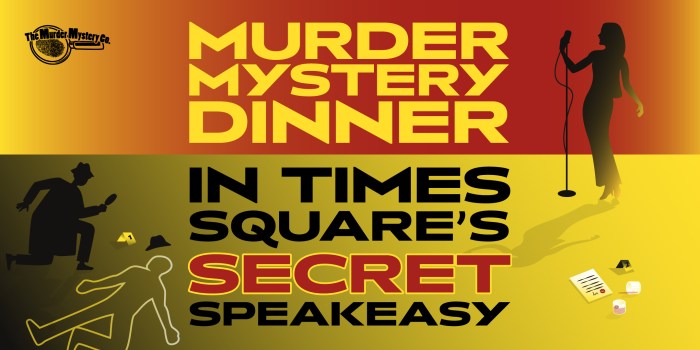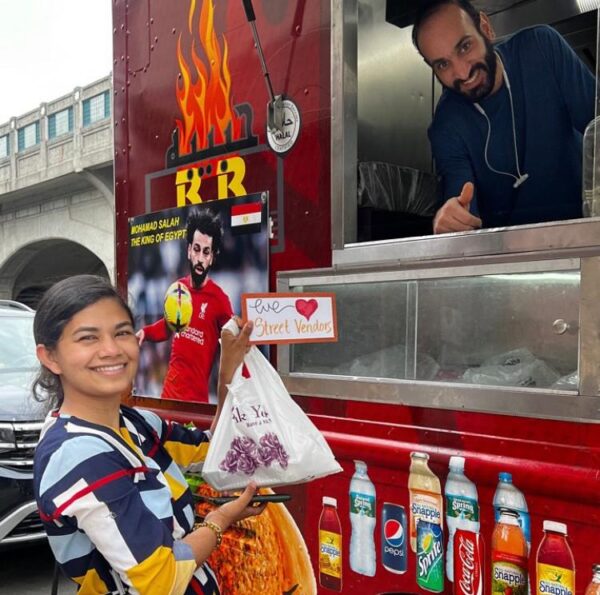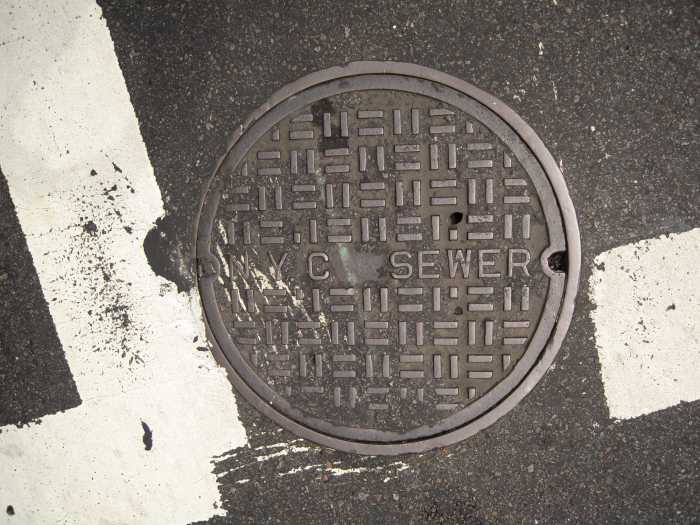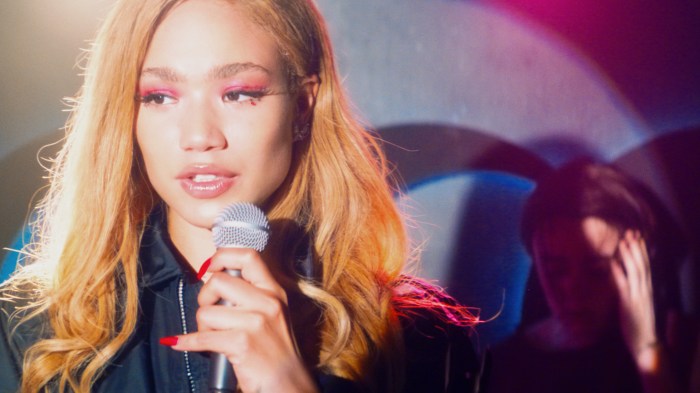Electronic cigarette retailers in New York can keep selling flavors like cotton candy and melon for now, after an appeals court blocked the state’s emergency ban on Thursday.
The New York State Appellate Division granted a temporary halt on the flavor ban, which was among several executive actions recently announced by Gov. Andrew Cuomo in an effort to tamp down the appeal of vaping to children and teenagers. Enforcement of the ban was supposed to begin Friday.
The issue will now go back to a Supreme Court judge in Albany County, who will weigh the request for a temporary injunction. The next hearing is set for Oct. 18.
State Health Commissioner Dr. Howard Zucker vowed to continue the legal fight.
"While the court’s ruling temporarily delays our scheduled enforcement of this ban, it will not deter us from using every tool at our disposal to address this crisis," he said in a statement. "Make no mistake: This is a public health emergency that demands immediate action to help ensure the well-being of our children, and we’re confident that once the court hears our argument they will agree."
Cuomo has accused companies of using candy- and fruit-flavored products to lure children and teens into becoming addicted to nicotine. After the ban was passed on Sept. 17, Cuomo directed Zucker to review the use and appeal of menthol flavored vaping products as well.
"It is clear that vape and e-cigarette companies are using flavors to get young people hooked on their products, and in New York we have taken several actions to put an end to this marketing tactic," Cuomo said on Sept. 26. "We can’t sit back and wait for the federal government to take action while a whole new generation becomes addicted to nicotine, and this ban on the sale of menthol flavors further enhances our efforts to protect young people from forming dangerous lifelong habits."
The governor’s sudden push to rein in the vaping industry also comes amid a deadly outbreak of severe lung illnesses believed to be related to using products containing THC, the psychoactive chemical in marijuana, and nicotine in the state and across the country.
The group that sued over the flavor ban, the Vapor Technology Association, cheered Thursday’s ruling and said it underscores the state’s "overreach."
"We are very pleased with the New York State Appellate Division’s decision, which acknowledges the strength of our claims about the state’s executive overreach, and which preserves the ability of hundreds of small businesses to remain open and continue to serve their adult customers," Tony Abboud, executive director of the vaping group, said in a statement.
The group has said flavored alternatives can help adults quit smoking.
Below, find out more about the state’s attempt to ban flavored nicotine products, other state actions, the lung illnesses that the U.S. Centers for Disease Control and Prevention is warning about and how vape companies are responding.
What vape flavors did the state ban?
The Public Health and Health Planning Council approved an emergency regulation that bans the sale of flavored e-cigarettes and vaping liquids in all forms. The only exceptions were tobacco and menthol flavors.
Can the state ban flavored e-cigarettes?
Yes, under state law, the Public Health and Health Planning Council has the ability to issue or amend regulations regarding emergency public health and safety issues.
When will the flavor ban go into effect?
The ban went into effect immediately and enforcement was set to begin on Oct. 4, but Thursday’s court decision temporarily halted the rollout.
Since it is an emergency regulation, the ban is effective for 90 days. After that, the Public Health and Health Planning Council would need to vote to continue the ban for another 90 days.
The Cuomo administration expects state lawmakers to vote on a bill that would make the ban permanent after the next legislative session begins in January.
How will the ban be enforced?
The state, relying on district offices and local health departments, will be responsible for carrying out compliance inspections of retailers.
Any individual or entity with ownership in a retail, distribution or manufacturing company accused of selling banned flavors could face civil penalties of up to $2,000 per violation. Retail employees accused of selling prohibited flavors could also face civil penalties. Under the ban, a violation can be issued for each individual unit of flavored e-liquid that is possessed, manufactured, sold or offered.
Is it illegal for adult consumers to use flavored products?
No, the ban only applies to the sale of flavored vape and e-cigarette products in New York. As of now, there is no regulation prohibiting adult consumers from using flavored products.
Why is Cuomo targeting flavored e-cigarettes?
The governor blamed nontobacco-flavored products for an alarming spike in the number of youths who reported using e-cigarettes in 2018.
State Department of Health data show 27% of high school students said they vaped last year, compared to 10.5% in 2014 — a 160% jump over four years. A survey conducted by the department in 2017 found that 19% of e-cigarette users between the ages of 15 and 17 said flavors were the reason they tried vaping.
"The alarmingly high numbers of young people in New York State who are using vape products is nothing short of a public health crisis," Zucker said after the ban was approved. "These regulations are a part of many critical steps we are taking to combat this disturbing trend."
In his recommendation to add menthol to the list of banned flavors, Zucker cited a CDC survey that was given to New York teenagers aged 15 to 17 earlier this year, which found 34.1% of those who said they vaped preferred menthol flavoring, second only to fruit at 51.8%.
The city Department of Health, meanwhile, reported about 6.7% of middle school students admitted to using e-cigarettes last year and 14.4% of students said they had tried vaping.
The push to ban flavored vaping products also comes amid a spate of lung illnesses documented across the country that the CDC believes is related to inhaling vaporized THC and nicotine products.
What is the CDC’s warning about vape-related illnesses?
As of Sept. 27, the CDC has documented 12 deaths and 805 confirmed or probable cases of lung illnesses believed to be related to vaping THC and nicotine products. State health departments in New Jersey and Nebraska have each reported an additional death, however the CDC won’t offer another update on its investigation until Thursday.
The symptoms, sometimes occurring over a few days or developing over several weeks, include:
- cough, shortness of breath or chest pain
- fatigue, abdominal pain or fever
- nausea, vomiting or diarrhea
The CDC said initial data suggests THC products "play a role in the outbreak." Of the 514 patients who have submitted information about the products they used in the 30 days before they fell ill, 77% said they used products containing THC and 36% said they only used a THC product. About 57% said they used nicotine-based products and 16% said they exclusively used a nicotine product.
In New York, the Health Department has received at least 99 reports of patients with illnesses believed to be connected to vaping THC and nicotine products.
While New York has a medical marijuana program, recreational use of the drug is illegal. The Health Department is warning residents against purchasing black market THC vaping products, particularly in light of this spate of illnesses.
The CDC is still trying to determine the specific cause of the illnesses, and has so far been unable to link a specific brand, product, device, liquid, ingredient, refill pod or cartridge to all of the cases.
The state Health Department said its own investigation into the cases in New York initially revealed high levels of vitamin E acetate in almost all of the THC vape products that patients submitted for testing, but added that a definitive cause has not been identified.
As the CDC and state Health Department continue their separate investigations, the agencies are urging users to refrain from vaping.
What else is the state doing to curb e-cigarette use among youth?
The Cuomo administration has ramped up educational awareness programs as well as enforcement efforts targeting retailers who sell the products to people who are underage. Anyone younger than 18 is prohibited from buying e-cigarettes. However, the legal age will be raised to 21 on Nov. 13 under a law that was signed by Cuomo in July.
Earlier in September, the state Health Department issued three subpoenas as part of an investigation into what ingredients are used in vaping substances. The department also issued a new rule requiring retailers to post signs warning of the possible health risks associated with vaping.
A 20% sales tax on all e-cigarette and vaping products, passed as part of the state budget in April, also aims to reduce youth vaping statistics. The sales tax goes into effect Dec. 1 and is projected to bring in about $2 million in revenue in fiscal year 2020, Bloomberg Tax reported in April.
Are there federal rules restricting vaping flavors?
The Trump administration also recently said it was looking to ban the sale of flavored vaping products nationwide. The Food and Drug Administration said all e-cigarette and vape companies will need to apply for certification by May 2020.
Acting FDA Commissioner Ned Sharpless said the application process will "ensure that those [products] authorized for marketing are appropriate for the protection of public health."
Sen. Chuck Schumer (D-NY) supports a federal ban on flavored e-cigarettes. He recently suggested the language in the FDA’s certification program needs to ensure flavored products are off the market.
"Those flavors shouldn’t be on shelves, and so the federal ban needs to be framed around that premise or it won’t be as effective, and it will easily circumvent local bans that states are proposing and passing," the lawmaker said.
What are e-cigarette and vaping companies saying?
The American Vaping Association argues the ban will shut down hundreds of businesses in New York.
"A ban on flavored vaping products will do absolutely nothing to address the very real and immediate public health emergency of contaminated marijuana oil cartridges sending New Yorkers to the hospital," AVA president Gregory Conley said. "New York bureaucrats and Gov. Cuomo have learned nothing about the reality of prohibition from these illnesses. Just like with marijuana, banning flavored vaping products is not going to reduce usage, but will instead push people to black and gray markets."
Beyond Vape, a company with outposts in Brooklyn, the Bronx and Manhattan, circulated a petition against President Donald Trump’s promise of a federal ban on flavors. The company pointed out in an email to customers that a majority of the cases confirmed by the CDC involve THC-related products, and suggested that both the Trump and Cuomo administrations are unfairly grouping black market THC vape products together with store-bought e-cigarettes.
With Newsday





